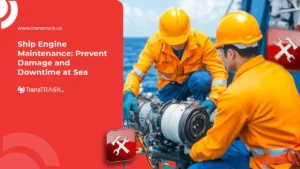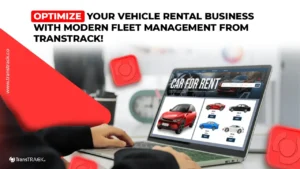Consignee: Definition, Role, Duties, and Benefits
Posted on May 20, 2024 by Nur Wachda Mihmidati

A consignee is a party that receives a shipment of goods in a trade transaction. In the context of logistics and international trade, the consignee is usually the final recipient of the goods sent by the shipper (consignor). Consignees can be individuals or companies whose names are listed in shipping documents, such as bills of lading, as the party entitled to receive the goods. Check out the roles, duties, and benefits of being a consignee through the following article TransTRACK !
Consignee’s Role in Logistics
Consignees play a very important role in logistics. The following is an explanation of these roles in more detail:
Official Receiver of Consigned Goods
The consignee is the party officially appointed to receive the goods delivered by the shipper (consignor). The consignee’s name appears on shipping documents such as bills of lading or airway bills, which gives them the legal right to receive the goods.
His/her duties Take possession of the goods when they arrive at their destination and ensure the shipping documents match the goods received.
Inspection of Goods
Upon receipt of the goods, the consignee is responsible for inspecting the goods to ensure that they conform to the specifications agreed in the contract or order. If there are any discrepancies or damages, the consignee should report them to the shipper or delivery service provider.
Responsible for Security of Goods
Once the goods are received, the consignee is responsible for the security and storage of the goods until they are further distributed or used. The consignee will manage the storage of the goods, ensure appropriate storage conditions to maintain the quality of the goods, and arrange security to prevent loss or damage.
Communicate Actively
Consignees need to actively communicate with the various parties involved in the logistics process, including the shipper, logistics company, and customs authorities if the goods are shipped cross-border. The consignee will relay information about the status of receipt of the goods, resolve any issues that may arise during the delivery process, and provide feedback to the shipper about the condition and suitability of the goods.
The consignee’s role in logistics is crucial to ensure that goods are shipped, received, and managed efficiently and effectively. Consignees must have good systems and procedures in place to handle these tasks to maintain a smooth logistics flow and minimize the risk of loss or damage to goods.
Consignee Duties
The duties of a consignee in logistics are diverse and involve various aspects of managing the goods received. The following is a more detailed explanation of the consignee’s main tasks:
Checking Shipping Documents
The consignee must check all shipping documents that accompany the goods. This involves verifying documents such as bills of lading, invoices, and packing lists to ensure that the information listed matches the goods being shipped. These documents should include precise details about the quantity, description of the goods, as well as shipper and consignee details. Accurate document checks are essential to avoid mistakes and ensure regulatory compliance.
Checking the Condition of the Goods
After receiving the goods, the consignee needs to open the packaging and check the physical condition of the goods. This inspection aims to ensure that the goods have not been damaged during shipment and conform to the specifications stated in the order or contract. If damage or discrepancies are found, further steps should be taken immediately to address the issue.
Processing Goods Receipt
The consignee is responsible for administratively processing the receipt of goods. This includes recording received goods in the company’s inventory management system, updating stock in the warehouse, and documenting the entire receiving process for internal audit and administrative purposes. This process helps maintain accurate records and ensure inventory integrity.
Reporting Problems with Goods
If there are any problems with the goods received, such as damage, shortages, or discrepancies, the consignee should immediately report them to the relevant parties. This includes contacting the shipper or logistics service provider to report the issue and, if required, file an insurance or compensation claim. Prompt and timely reporting is important for problem resolution and replacement of goods.
Maintain Security of Goods
Once the goods are received, the consignee is responsible for maintaining the security and storage of the goods. This involves ensuring that the goods are stored in a place that is safe and suitable for their storage needs, such as proper temperature and humidity. Security measures should be implemented to prevent theft or further damage, including the use of adequate security and surveillance systems. This task is essential to ensure the goods remain in good condition until further use or distribution.
Consignee Advantages
Consignees have some significant advantages in the logistics process. The following is an explanation of these advantages:
More Efficient Goods Receiving
Consignees can ensure a more efficient goods receiving process. Since the consignee is the party that receives the goods directly from the shipper, they can immediately verify and process the goods received. This allows for fast and accurate receiving, which in turn can speed up the entire supply and distribution chain. This streamlined process helps reduce lead times and ensures goods are immediately available for use or sale.
Responsible for the Condition of Goods
By becoming a consignee, the party has direct responsibility for the condition of the goods received. This includes inspecting the goods to ensure there is no damage or discrepancies with the order. Since the consignee is responsible for the inspection and storage of the goods, they can take immediate action if there are any problems. This responsibility also encourages consignees to maintain the quality and integrity of the goods, which is important for customer satisfaction and smooth operations.
Reducing Shipping Risks
Consignees play an important role in reducing the risks associated with shipping goods. By inspecting and confirming the condition of the goods upon receipt, consignees can detect and address issues quickly, such as damage or shortages. This helps reduce the risk of loss and minimize the negative impact of delivery issues. Additionally, consignees who are proactive in managing the security and storage of goods can prevent further theft and damage, which means fewer insurance claims and additional costs to bear.
Overall, being a consignee provides benefits in terms of receiving efficiency, responsibility for the condition of the goods, and reduced shipping risks, all of which contribute to smoother and more effective logistics operations.
In handling freight shipments, the role of the consignee is key in ensuring a smooth logistics process. By checking the shipping documents, ensuring the condition of the goods, and being responsible for the receipt of the goods, the consignee plays an important role in maintaining the integrity and safety of the delivered goods.
However, being a consignee is not an easy task. To strengthen efficiency and effectiveness in managing freight shipments, TransTRACK offers the best solution: Transportation Management System (TMS). By using TransTRACK’s TMS, consignees can manage shipments in a more structured and efficient manner.
TransTRACK’s TMS makes it easy to track and manage shipments from start to finish. From document management to shipment routing, this TMS enables consignees to optimize their logistics operations. Moreover, advanced features such as real-time monitoring and data analysis help consignees identify potential improvements and take timely actions.
So, if you are a consignee looking to improve efficiency and reliability in the management of freight shipments, don’t hesitate to switch to TransTRACK’s Transportation Management System. Make your logistics experience better today with TransTRACK. Contact us now for more information!
Topic :
Recommended Articles

Improving Fleet Safety through Traffic Accident Prevention with ADAS
Featured Product | February 12, 2026
 Bahasa Indonesia
Bahasa Indonesia







